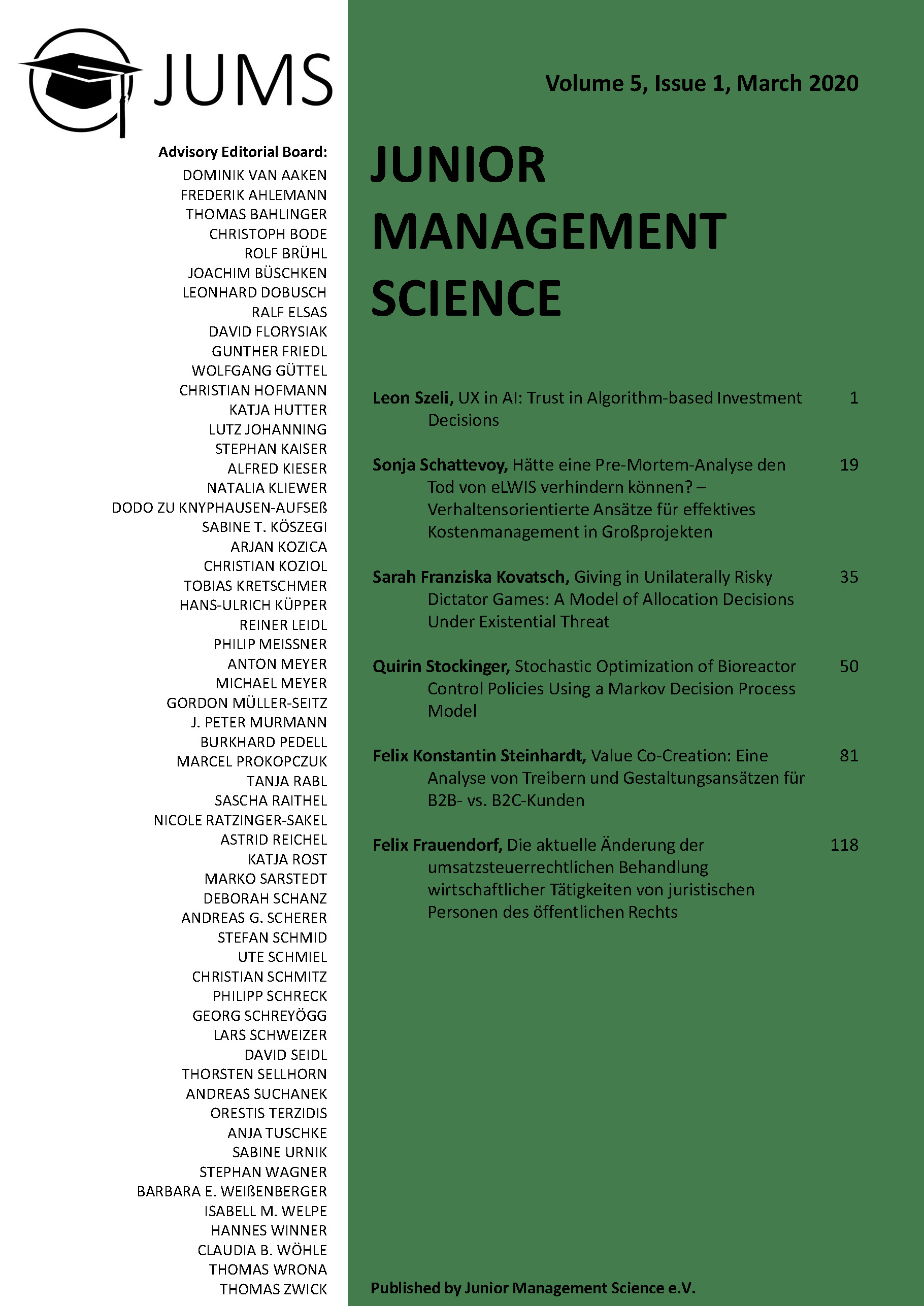Abstract
Biopharmaceuticals are the fastest-growing segment of the pharmaceutical industry. Their manufacture is complicated by the uncertainty exhibited therein. Scholars have studied the planning and operation of such production systems under some uncertainties, but the simultaneous consideration of fermentation and resin yield uncertainty is lacking so-far. To study the optimal operation of biopharmaceutical production and purification systems under these uncertainties, a stochastic, dynamic approach is necessary. This thesis provides such a model by extending an existing discrete state-space, infinite horizon Markov decision process model of upstream fermentation. Tissue Plasminogen Activator fermentation and chromatography was implemented. This example was used to discuss the optimal policy for operating different fermentation setups. The average per-cycle operating profit of a serial setup was 1,272 $; the parallel setup produced negative average rewards. Managerial insights were derived from a comparison to a basic, titer maximizing policy and process sensitivities. In conclusion, the integrated stochastic optimization of biopharma production and purification control aids decision making. However, the model assumptions pose room for further studies.
Keywords: Markov decision process; biopharmaceuticals production; fermentation uncertainty; chromatography resin; stochastic performance decay.

Dieses Werk steht unter der Lizenz Creative Commons Namensnennung 4.0 International.
Copyright (c) 2020 Junior Management Science e.V.

